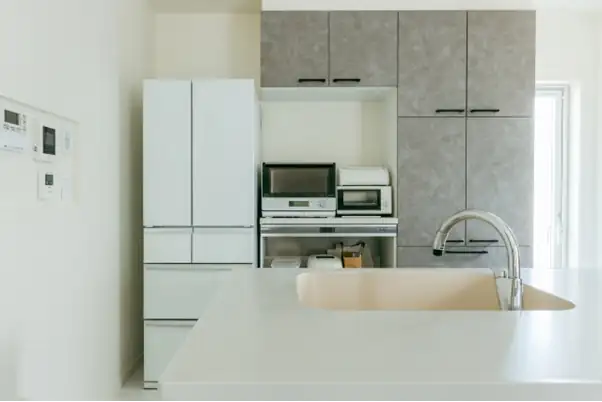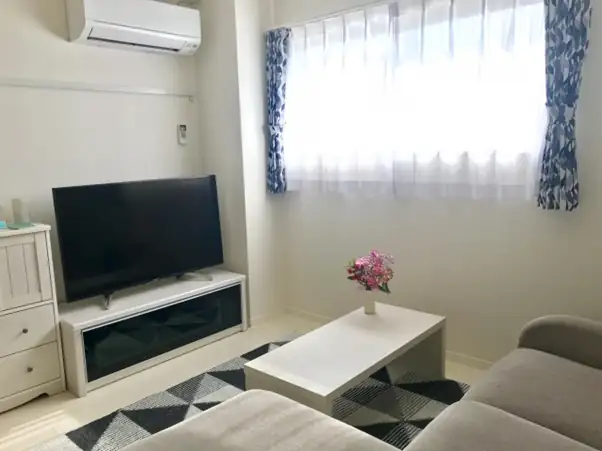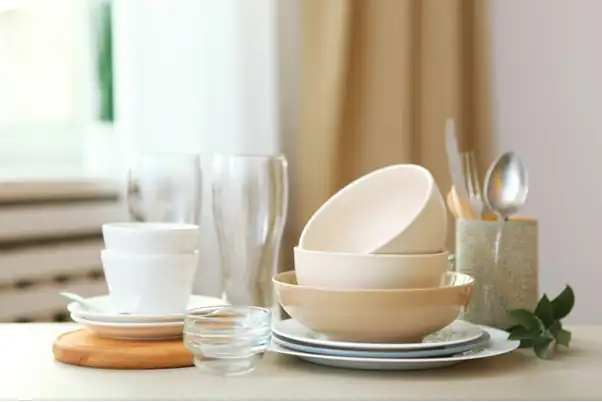When moving to a new home, there are many things you’ll need to acquire. However, the process can often feel overwhelming, and many people aren’t sure where to begin.
To make things easier, we’ve organized a list of essential items, categorized for your convenience. Use this guide to help you gather everything you need for your fresh start.
Village House offers a wide selection of affordable properties across Japan, with rents starting as low as ¥ 20,000. If you’re looking for a new place to call home, make sure to visit our website.
Appliances

- Washing machine
- Refrigerator
- Rice cooker
- Microwave oven
- TV
Washing machine
When selecting a washing machine, it’s important to first measure your available installation space. For those living alone, a machine with a capacity of around 5 kg is typically sufficient. Washing machines generally come in two types: front load and top load, so choose the one that best suits your lifestyle and available space. If you don’t have the option to dry your laundry outside, consider a model with a drying function for added convenience.
Refrigerator
If you cook frequently at home, a refrigerator with a capacity of 150L to 200L is ideal. For those who plan to freeze large quantities of food, a model with a spacious freezer is recommended. If you don’t cook often, a smaller refrigerator with a capacity under 100L will work just fine.
Additionally, if your refrigerator has a heat-resistant top, you can place a microwave or toaster on it to maximize your limited space.
Rice cooker
A rice cooker is an essential appliance if you cook at home. For individuals living alone, a rice cooker that can cook 3 to 4 cups of rice is ideal. If you cook large batches and freeze rice in smaller portions, this allows you to easily heat a single serving whenever needed.
Microwave oven
There are two main types of microwaves: basic models for reheating food and more advanced ones with oven functions. If you frequently cook at home, we recommend choosing a microwave with an oven function to broaden your cooking options. Prices typically range between ¥10,000 and ¥20,000, so it’s important to select one based on your budget and cooking habits.
Television
If you enjoy watching TV programs, YouTube, or streaming videos, having a television is a great addition. Be sure to choose a TV that fits well with your room. A TV that is too large can feel overwhelming, while one that’s too small might be hard to view. For a room around 6 to 8 tatami mats, a 32 to 43-inch TV is a perfect choice.
Furniture

- Bedding
- Tables and chairs
- TV stand
- Storage furniture
- Sofa
Bedding
Before purchasing a bed, make sure to measure the space where it will be placed to ensure a good fit. Additionally, choose a futon and pillow that match the bed’s size, along with sheets that are appropriately sized. If your bedroom is a Japanese-style room, consider using a traditional Japanese futon.
Tables and chairs
Sitting directly on the floor for work or meals can strain your back and waist. It can also affect your posture and work efficiency. To create a more comfortable and functional environment, it’s recommended to invest in a table and chair that will provide proper support for both eating and working.
TV stand
When purchasing a TV, it’s crucial to select a TV stand that is the right height for comfortable viewing. Placing a TV directly on the floor can make the screen too low and difficult to watch. The TV stand should be positioned at eye level when seated. A natural line of sight is typically 10 to 15 degrees downward, so it’s ideal to have the screen slightly below your eye level. If you’re watching TV while seated on a sofa, a stand height of about 40cm to 60 cm is recommended.
Storage furniture
If your living space has limited storage space, consider adding furniture like bookshelves, cupboards, and wardrobe cases to help keep your belongings organized. Take note of the available storage space in the closet and kitchen and consider purchasing additional storage pieces if needed.
Sofa
If you have the space, a sofa can be a great addition to your home. It provides a comfortable spot to relax after a long day at work or school, making your time at home more enjoyable. There are also many compact single-person sofas available for those living alone. Choose a sofa that fits the size and layout of your room to make the most of your space while creating a cozy living area.
Daily necessities

- Hair care and body care products
- Towels
- Paper products
- Hangers
- Laundry supplies
- Cleaning supplies
Hair care and body care products
Ensure that you have essential personal care items like shampoo, conditioner, body soap, and other bath essentials ready for your first day in your new place. Don’t forget to bring a bath mat and toothbrushing products so you can settle in comfortably.
Towels
Towels are used for bathing or washing your face. It’s a good idea to have several towels of different sizes, such as face towels and bath towels.
Paper products
Stock up on essential paper products like toilet paper and tissue paper before you move in. These items will be used frequently during your first few days, so be sure not to forget them. Since paper products are consumables, it’s a good idea to buy in bulk to avoid running out.
Hangers
To keep your clothes in good condition, especially items like coats and suits that are prone to wrinkling, make sure to have hangers ready.
Laundry supplies
After moving in, you’ll likely need to wash clothes that got dirty during the unpacking and cleaning process. Prepare laundry supplies such as detergent, fabric softener, and laundry nets in advance so you can tackle the laundry as soon as needed.
Cleaning supplies
Unpacking can create more mess than you expect. Be sure to have cleaning supplies ready, including trash cans, trash bags, floor wipes, and lint rollers. These will come in handy for quickly tidying up and keeping your space clean as you settle in.
Kitchen supplies

- Cooking utensils
- Tableware
- Dish drainers
- Storage products
Cooking utensils
If you plan to cook at home, make sure to have the essential cooking utensils, including frying pans, pots, cutting boards, and knives. Depending on your cooking habits, you may also want to prepare ladles, spatulas, bowls, measuring cups, and other items that suit your needs.
Tableware
Even if you don’t cook frequently, it’s important to have basic tableware such as plates, bowls, cups, chopsticks, spoons, and forks. You don’t need an extensive collection, but having enough for everyone in your household will ensure you’re prepared for meals.
Dish drainers
There are various types of dish drainers available, including foldable and compact models that are perfect for smaller kitchens. Choose one that fits your kitchen’s size and storage needs so you can keep your dishes organized and dry efficiently.
Storage products
Kitchens can quickly become cluttered with utensils, dishes, and cookware. If you prepare the appropriate storage goods to store them efficiently, you can keep them organized and uncluttered.
Commonly forgotten items

- Curtains
- Power strip
- Hair dryer
Curtains
One item that is often forgotten is curtains. Without them, you may find it uncomfortable as you’ll be unable to block out sunlight or prevent gazes from the outside. Be sure to prepare curtains so you can enjoy privacy and comfort from the moment you move in.
Power strips
If there are limited electrical outlets in your new space, it can be challenging to arrange your home appliances and charge electronic devices. It’s a good idea to have power strips on hand to create a more convenient and functional setup, ensuring you can use your devices without hassle.
Hair dryers
Hair dryers are often shared among family members, and when moving out on your own, it’s easy to forget to prepare one for yourself. Without a hair dryer, you’ll be left unable to dry your hair after a bath, and if your hair stays wet, it can lead to colds. Be sure to bring or buy a hair dryer to avoid any discomfort.
At Village House, a deposit, key money, processing fee, or renewal fee is not required (※). If you’re looking to save on initial costs, don’t hesitate to contact us for more information.
※Please note that a deposit may be required depending on the specific terms of the contract and the results of the screening process.
Related article: Living Alone for the First Time? Checklist of All the Things You Need

Hello, I’m Machiko Doi, a freelance writer who writes about housing and living in Japan.
I live in an 80-year-old house that I inherited from my grandparents along with my two shelter cats and daughter.
We live a relaxed life while repairing the house.
I like to cook vegetables from the garden and fresh fish caught by my father, and enjoy them with cold beer on a hot day or hot sake on a cold day.



